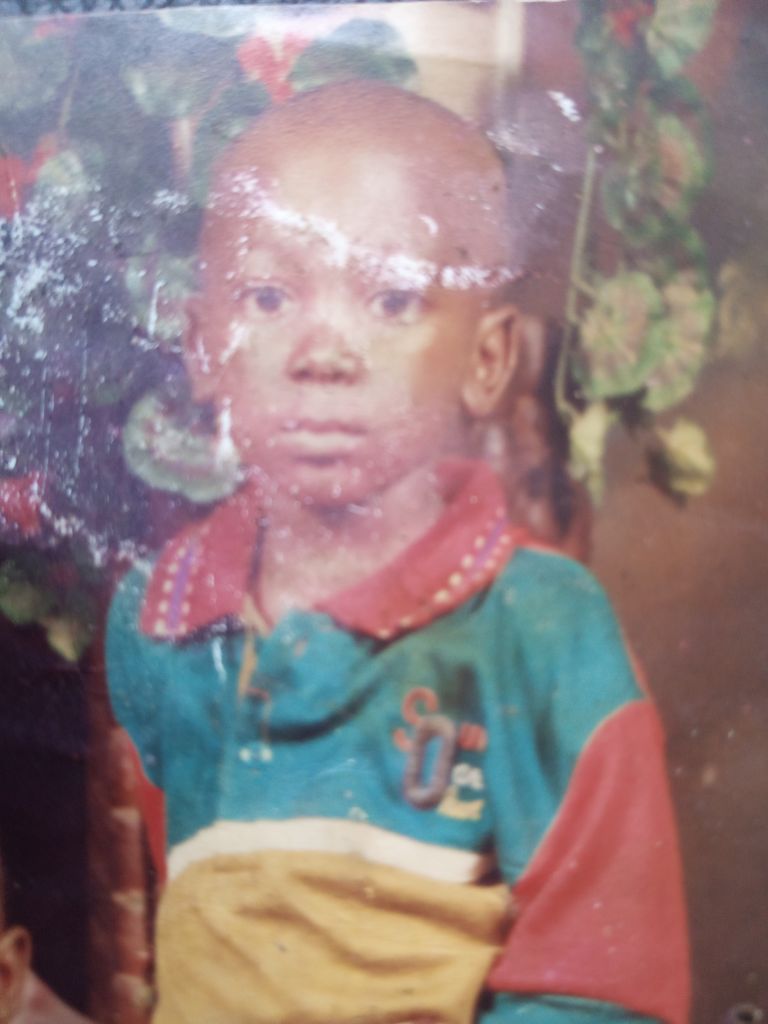
I am from a small village in the southeastern part of Nigeria. Swimming, climbing trees for fruits, killing lizards with catapults and playing hide and seek were the major games that characterized my growing up in the village. I bruised my skin the first time I tried riding a bicycle. It was on a Christmas. One of my relatives had returned with his bicycle and together with the other village children we crowded him and tried to have a test ride. ‘You do not know how to ride’ one of the kids had told me. I refused to listen—it was cowardly to accept inability of riding a bicycle. I was about nine years then. I remembered sitting on the bicycle seat and placing my leg on the pedals; ‘push!’ I commanded. The boy behind pushed the bicycle from allowing me to move forward in a swift. At first I enjoyed the movement down the hill but when I noticed I was not stopping and I didn’t know how to stop I knew I was in for a big mess. I could hear the distant voices of the other kids shouting from behind. ‘bang!’ my mind switched off—next I was on my mother’s lap receiving a hot water massage.
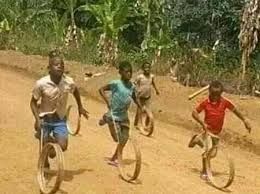
Photo credit: Google
Fallen didn’t make us relent from learning to ride a bicycle. I continued when the wounds had healed. Everything in the village was learnt in the hard way. Before one could swim, one had to drink some water involuntarily—people must have come to their rescue. I remember falling from an uha tree while trying to prove to my grandmother that I could climb tree. Christmas was the best season growing up. The most significant characteristic of the Christmas season is the change in everything. This change included a new hairdo, a new dress, new shoes and new foodstuffs. Sometimes a stubborn child, who had refused to go errands for his mother or father, was always threatened with non-procurement of Christmas cloths. ‘chima if you do this I will never buy Christmas cloth for you’ whimmmmm I zoomed off usually to the place of errand. The most painful thing was wearing last year’s cloth for the current year celebration. Relatives from the cities came back with their kids and other family members.
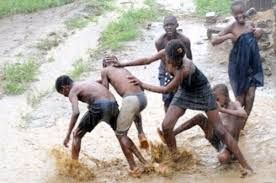
These kids from the cities were always arrogant and mean. I hated them because they were always making life difficult for us. They looked well-fed and wore fancy cloths. They had many toys to play with and sometimes when any of them refused to lease their toys for us to play with; he or she was thoroughly beaten. Living in the village and growing there had the advantage of making us stronger physically. I remember an incidence that happened when I was thirteen.
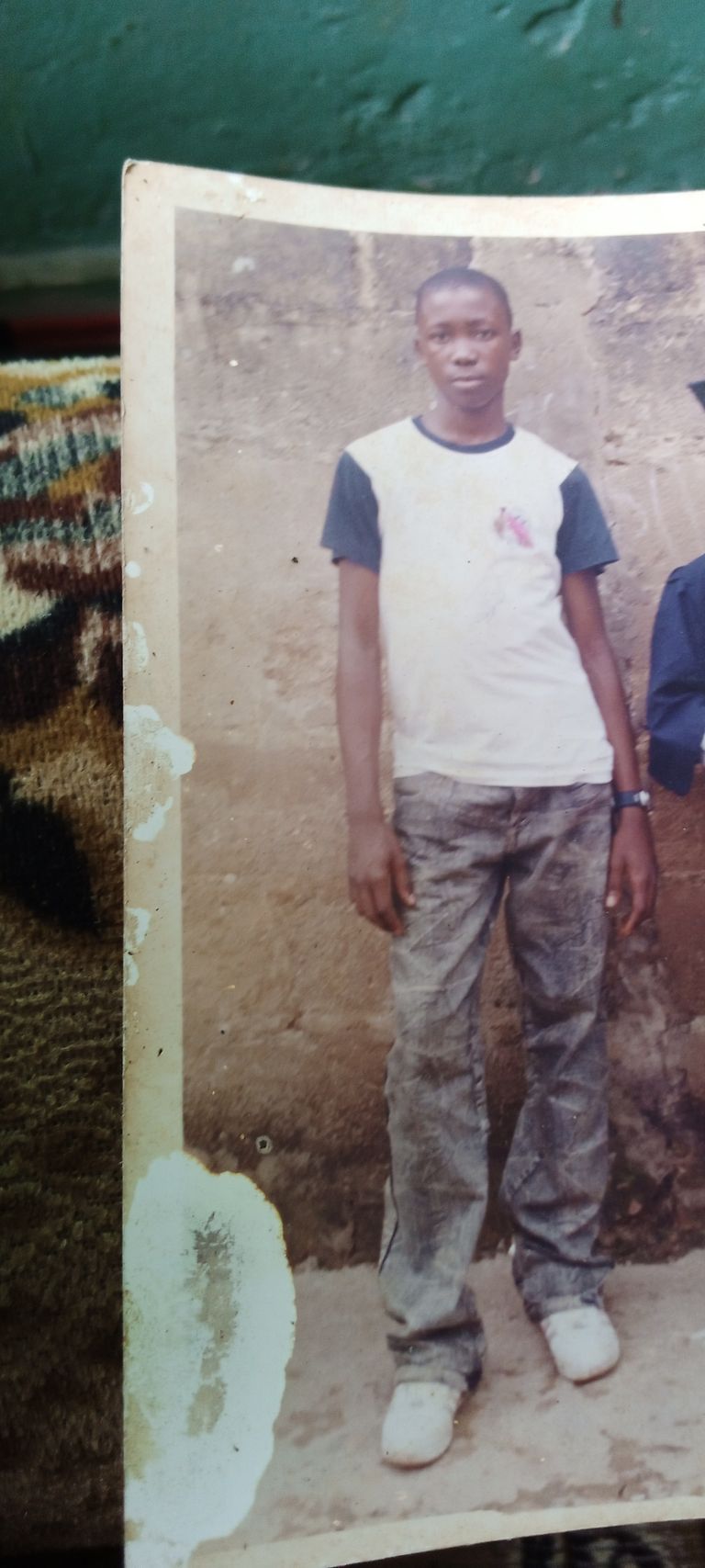
I guess I was fourteen in this picture
One of those festive periods, when the weather was always cold, one boy of about eleven years was beaten by Amasike for not leasing his bicycle for a ride. ‘How old is this boy?’ I asked Amasike softly. Amasike had wanted to beat up the boy when he had refused to release his bicycle, but first we had to be sure he was not older. If he were to be older and succeeds in beating Amasike, he would be blamed for picking up a fight with his senior. ‘I think he should be fifteen’ he had replied ‘taaa look at his jaws they are just blown up….. I can beat this boy’ I boasted. ‘I don’t think so’ ‘Ama, let me tell you something, I heard that these young children eat feed in the cities and soft food that is why they grow huge, but their bones are never strong’ I narrated. Our parents in the village had always told us how strong our bones were because of the yam and pounded yam we ate. The only time we ate rice in the house was on Sundays. And we could eat rice for the whole day’s meal only during Christmas especially on Christmas day. We were never tired of eating rice. ‘paaaaa!’ Amasike’s palm landed heavily on the boy’s back. I withdrew and stepped backward. I was not standing upright, one of my legs was in front while the other was behind. ‘Hit me back if you think you are strong’ I could hear Amasike’s voice boasting. The plump boy stared with red eyes on Ama. ‘Leave me ooo, I don’t want to fight you’ he said ‘me I want to fight you’ Ama slapped his both palm on the boy’s chest. By the time they had finished fighting I was already playing with the bicycle with other children. It was easy to pick up a fight with someone but it was easier to settle the quarrel. As children we learnt to forgive and forget wrongdoings.
At the age of fourteen my father told me I was ready for me to undergo the rites of passage into manhood. I was considered a man only when I had passed this initiation process. No boy was considered an adult until he has performed the ritual or rites of passage into manhood. The money used in the payment of items for the initiation process had to be earned by any boy who was to undergo the process. The money was usually gotten through assisting farmers in their farms through cultivation of farmlands or cutting down trees. This process is usually called imamowu. The initiation began at midnight. During this time, he was led into a dark room where he is frightened by masked individual usually a masquerade or charms. The masquerade puts a reed between his jaws and talks like a spirit. The young boy is expected to shake hands with this masquerade. The boy is tested in various ways to ascertain his love for the society and the village. The spirit threatens to kill him with a sword if he did not renounce his love for the society. The boy is considered a man if he refuses to give in to this antics. He is stabbed with a makeshift sword. Thereafter is led to the assembly and congratulated.
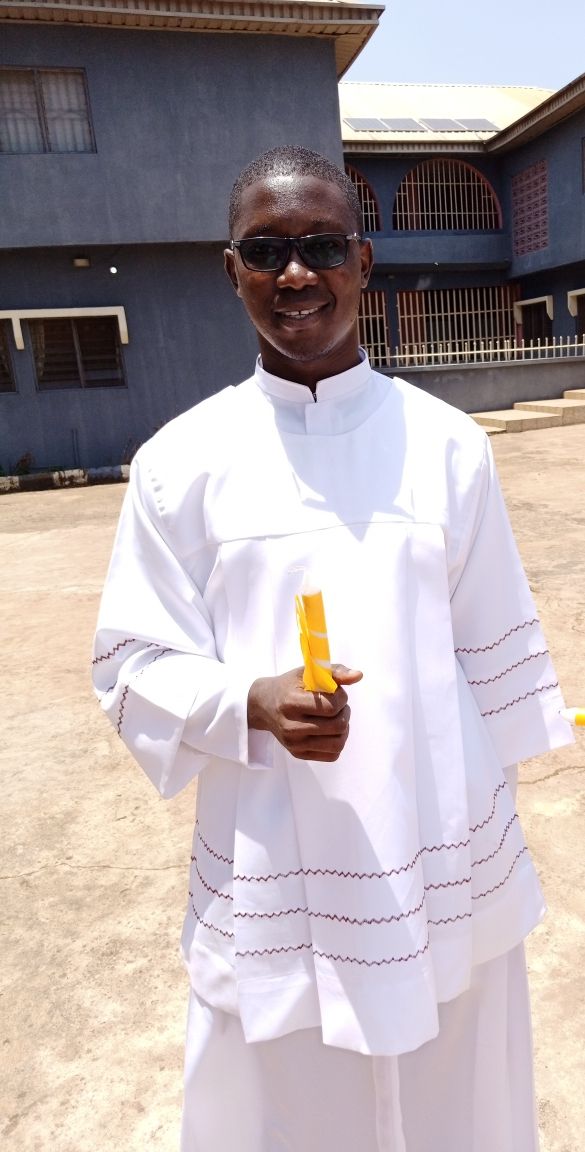
Religion not against culture.
A second thing he learns is to dress a masquerade. After passing the test, he is considered worthy to discuss with adults and even get married and take up responsibilities. My passage into adulthood was the most important period in my life as a child growing up in my village. I was happy because I could eventually partake in the cultural festivals with my age mates and was entitled to my opinion too. Sometimes when someone was being married out to other villages, some items were listed for our age grade, and only those who had passed the rite of passage into adulthood took part in the sharing.
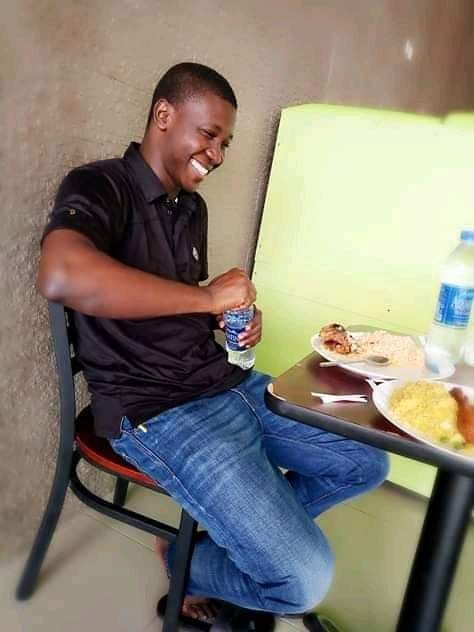
One other important aspect of my childhood that made my childhood memorable is the market. The market day was a four-day schedule. Thus, every four days people come with their wares from neighboring villages and the cities to sell their goods. The market was crowded; one had to search for what one needed for more than an hour before getting it unless one knew the particular place or seller. Cassava, leaves for soup, plantain, banana, other fruits and native items were sold. Traders who came from the cities came with various items like clothes, shoes, cosmetics and other august items found only in the towns. My worst experience was when I was sent to the market on one of those days to buy tetracycline. I was about seven then. On my way to the market I met some of my age mates playing football on the pitch close to the market, I decided to join them and catch some cruise for a while. After the play I totally forgot the name of the drug I had muttered on my way from the house. I went to the medicine shop and couldn’t pronounce the name. When I got home my mother nearly pulled my ear from my head. (Pulling the ear was typical of African mothers whenever they wished to correct a kid). I was thoroughly beaten.
Going to the stream in groups was another event that marked growing as a kid in my village. We left for the stream very early in the morning. It was alleged that spirits returned from their meetings at that hour so we were advised to move in groups. We went more than five rounds each morning. At the last round we swam and played in the water before going back home. It was the duty of the boys to fetch water from the stream. The women stayed at home for the chores and cooking.
I can't stop laughing when you narrated you experience of tetracycline 🤣🤣🤣... A typical Nigerian childhood story.
Hahahah. My brother, growing up in Africa especially in Nigeria is an experience I would forever cherish.
:::Discord :::Whatsapp:::Twitter :::
Lol🤣🤣 i can't stop laughing
Yeah. Does these happen where you grew up too?